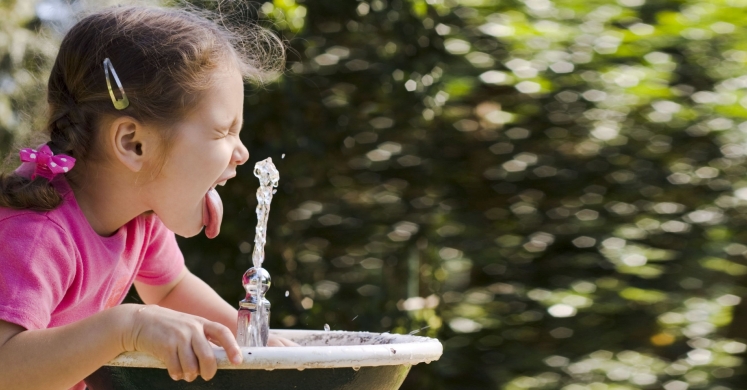Blog

Ask Ginger: How to Cut Sugary Drinks
You've got questions ... we’ve got answers! Email your queries about healthy foods, physical activity and screen time for kids and Ginger will answer them here on the Phipps blog.
Q: What does the latest research say about ways to help children reduce intake of sugary drinks? (Ryan, Squirrel Hill)
A: Great question! Two recent studies shed new light on what children know about sugary drinks and tactics that may be effective in reducing availability and consumption.
In one recent study in the Journal of Nutrition Education and Behavior, researchers conducted focus groups with 5th and 6th grade children to gather their views on sugar-sweetened beverages, the impact on their health, and tactics to consume less to stay in good health. The children displayed a high level of awareness of sugar-sweetened beverages and their impact on health. For example, soft drinks were the most frequently identified when children were asked which beverages were sugary drinks, followed by fruit drinks and energy drinks. Milk, water, and 100% fruit juice were also identified most frequently as healthier options. Children were also aware of the negative consequences of consuming sugar-sweetened beverages (high sugar content, hyperactivity and weight gain) and credited their teachers and parents as the source of awareness. Taste, preference and parental control dominated children’s beverages choices and parental control was the dominating factor influencing consumption. This study also suggests that children are in favor of educational strategies, such as visually showing how much sugar is in each drink rather than lecturing, and policy level strategies, such as limiting advertising of sugar-sweetened beverages at schools.
In another study published by Pediatrics, researchers tested the effectiveness of a warning label reading “SAFETY WARNING: Drinking beverages with added sugar(s) contributes to weight gain, type 2 diabetes and tooth decay” in discouraging parents from choosing sugar-sweetened beverages for their children. 2,381 parents of a child between six to 11 years old participated in an online survey. One group of parents viewed beverages containing warnings labels and another group viewed beverages without any warnings. Forty percent of participating parents said they would choose a sugar-sweetened beverage for their kids after viewing a warning label, compared to 60 percent of participating parents who saw no label. This study suggests that when parents are given information about the health impact of sugar on the front of sugary drink, they may be motivated to look for other, healthier options.
Visit Phipps' Let's Move Pittsburgh page for resources on nutrition, fitness and more!

